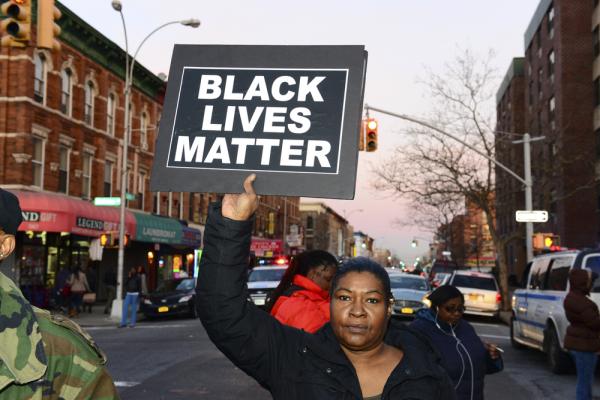It is difficult to understand why people, particularly Christians, view a statement as patently obvious as “Black Lives Matter” as a subject for controversy. However, sometimes the most obvious things still need to be said.
So:
Black lives matter because God made every one of us in God’s image. Black lives matter because the Bible tells us that we are part of a body and the eye cannot say to the hand, “I don’t need you.” Black lives matter because God pays particular care to those crying out under the burden of injustice and oppression.
As people of faith in a neighborhood that has been rocked by protests, tear gas, and arrests, we have sought to stand in solidarity with those who are groaning under the burden of oppression. We offer some physical support — hand warmers, a cup of coffee, an extra pair of socks, but we also offer our presence. The Bible often refers to Christians as “witnesses,” and there is something important about simply standing next to our neighbors in the streets and seeing what is actually happening.
We firmly believe that Jesus needs to be down in the clouds of tear gas and he lets us, his people, participate in his reconciliation by bringing him there with our own two feet. Christians, and particularly evangelicals, need to be in the streets. Our neighbors are just outside our doors, crying out that the system is broken and that our culture doesn’t value the lives of our brothers and sisters. We, as Christians, believe in sin and brokenness and we need to live out our belief that God values all of God’s people even as our culture picks and chooses who is worth caring about.
Read the Full Article

